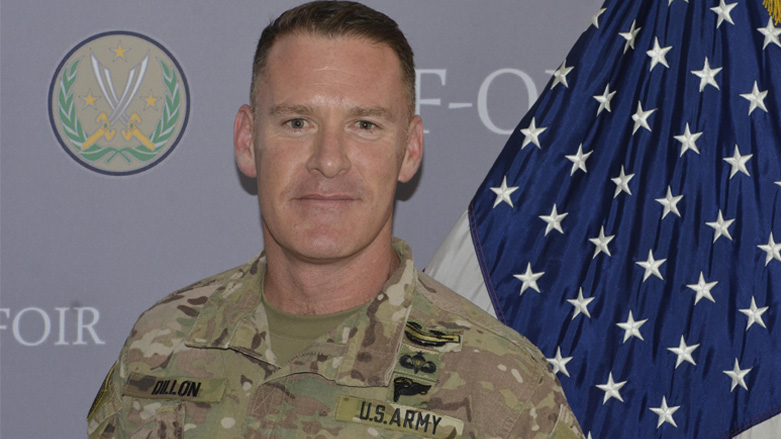US-led coalition supports continuing talks between Erbil and Baghdad

WASHINGTON DC, United States (Kurdistan 24) – Col. Ryan Dillon, Spokesman for the US-led coalition against the Islamic State (IS), told reporters on Tuesday that the coalition strongly supports continuing negotiations between Erbil and Baghdad.
“We reiterate the importance of continued dialogue,” he said, speaking by teleconference from the coalition headquarters in Baghdad.
“We have seen recently, when military attention and security forces are diverted from the fight against (IS), that terrorist groups seize on opportunities to launch attacks against civilians and security forces,” he continued.
Responding to a question from Kurdistan 24, Dillon explained that high-ranking coalition officers “were present for some of the meetings” between Peshmerga officers and those from the Iraqi army.
There are now fewer face-to-face meetings between the two military forces, “but I understand that they are in constant dialogue over the phone,” Dillon explained.
Coalition leaders “are still in contact with Kurdish and with Iraqi security force leaders who are also playing a part in the mediation,” he said.
Dillon also noted that force levels on each side remained stable. “We've not seen any buildup,” he stated, “nor any drawdown” from either side.
Dillon was also pressed on a BBC report about a deal reached last month between the Syrian Democratic Forces (SDF) and IS that allowed “hundreds of IS fighters, their families and tons of weapons and ammunition” to leave Raqqa for territory still controlled by the jihadist group further down the Euphrates River.
The large convoy consisted of 50 trucks, 13 buses, and over 100 IS vehicles. It “wasn’t so much an evacuation,” as an “exodus,” the BBC suggested.
The story was based on interviews with drivers in the convoy, as well as residents in the towns along its route.
Dillon explained that the evacuation had been the result of an agreement among the Raqqa Civil Council, the SDF, and local tribal elders. The coalition had been aware of it and provided some input.
According to that agreement, biometric data was to be taken from IS-aged males to identify any known IS fighters. During that screening, Dillon explained, four foreign fighters were identified and detained by the SDF.
Dillon acknowledged that nearly 4,000 people had left Raqqa—3,500 civilians, along with some 300 potential IS fighters. However, the coalition was “not aware of, and certainly cannot corroborate” the significant amount of weapons and ammunition described in the BBC story, he said.
Editing by Nadia Riva
